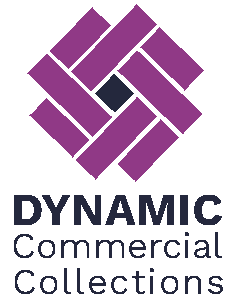
08 Nov The Difference Between Debtors vs Creditors
We often use jargon in the debt collection industry. Our terminology is intended to clarify our work and draw legal distinctions between our clients and their debtors.
The good news is that most of our jargon is simple to learn. The more you know, the easier it gets to understand our services and your rights as a creditor or debtor.
The difference between a debtor vs creditor is one of the most common questions we get. It’s also the basis of our industry, so we’re going to go over the meaning of each term in this article.
What is a Debtor?
A debtor is an individual or business that owes money to another entity (the creditor). You are a debtor if you have borrowed money or if you have received goods and services that you haven’t yet paid for.
Debtors have certain financial obligations. This includes repaying the debt according to the agreed upon terms (e.g. paying interest, repaying the debt by a certain date, making regular instalments, etc.).
For example, Garments Galore is a clothing manufacturer. They order fabric in bulk from Fantastic Fabrics.
These fabric orders are large and can be worth tens of thousands of dollars. To help manage their cash flow, Garments Galore pays for the materials in two instalments.
The first instalment is paid before the fabric is delivered. The second instalment is paid once Garments Galore has finished their manufacturing run and sold the completed garments to their customers.
This means Garments Galore is the debtor of Fantastic Fabrics until the second instalment is paid.
Even though Fantastic Fabrics is not a bank or lending institution, they have provided goods before receiving full payment, and Garments Galore is legally required to pay its debt.
What is a Creditor?
A creditor is an individual or business that has lent money to another entity (the debtor). You are a creditor if you have provided money, goods or services to someone else and they haven’t yet paid.
When you think of lending money, you probably think of major banks and lenders. But any individual or business may be considered a creditor. Banks, lenders, businesses, suppliers, service providers, and even friends and family can be creditors.
For example, Auto Loans Inc is a private lending institution. Auto Loans Inc is approached by Barbara, who’d like to buy a new car.
Auto Loans Inc checks Barbara’s credit history and is satisfied that she will be able to repay the loan. They lend Barbara the money and both parties sign a contract saying that the loan will be repaid in regular instalments over the next 4 years.
Auto Loans Inc is the creditor of Barbara until the full amount of the loan is repaid.
Secured vs Unsecured Creditors
There are two main types of creditors: secured and unsecured. The distinction between the two is based on the type of debt you are owed:
Secured and unsecured creditors both have a legal right to recover the money they’re owed.
Protect Your Business with Debt Recovery from Dynamic Commercial Collections
While you probably think of banks and lenders as “creditors,” there’s a good chance your business acts as a creditor for many of your customers. Playing the role of creditor is a great way to expand your business and build trust, but it can put you in a vulnerable position.
If your business is left holding bad debt then it’s time to contact Dynamic Commercial Collections. Dynamic Commercial Collections offers professional debt recovery services in Brisbane, Bundaberg and Perth. We work with individuals and businesses, providing expert debt collection and field services that maximise your returns.
We take pride in using the latest technology and ethical recovery tactics to collect outstanding debts. That’s good news for your business, and it’s good news for your debtors. Contact us today for a consultation and to find out more about recovering the debts you are owed!
How to Manage Your Risk as a Creditor
Reducing your risk is the best thing you can do as a creditor. Here are a few tips on avoiding client debt:
1. Set Clear Payment Terms
Contracts are the biggest risk factor for creditors. If the terms of your payment agreement are poorly defined, it increases your risk of bad debt.
We recommend working with a contract lawyer to develop a standard payment agreement that meets your cash flow needs. This agreement states how your goods and services are delivered, and the payment terms the debtor is required to meet.
How Creditors Recover Money from Debtors
If you or your business is acting as a creditor and your debtor can’t or won’t repay their debt, you can recover your money in a few ways:
Commercial debt collection is your best chance of receiving payment. Many debtors stop paying their debts because they’re unable to keep up with the terms of your agreement.
That can put your business in a bad position. If debtors can’t pay, you won’t have the cash you need to meet your own obligations, which can quickly get out of hand. Working with a professional debt collector can help you recover more of your money in less time.
Debt collectors prefer to negotiate payment plans that help the debtor meet their obligation. This allows you to meet your cash flow requirements without damaging the relationships you hold with valuable customers.
In Australia, creditors have a legal right to the money they are owed. If a debtor can’t or won’t repay their debt, you may be able to take legal action against them.
We strongly recommend pursuing other debt recovery methods if possible. Legal action is complex and
can be a drawn-out process.
Taking legal action may be the best course of action if there is a dispute between you and your debtor.
If you pursue legal action and successfully obtain a judgement against your debtor, there are several legal means you can use to recover the money you are owed:
You can learn more about what debt collectors can do if you don’t pay on our blog.
If you are owed $10,000 or more by a private individual, you can apply to the court to make them bankrupt. During bankruptcy, the debtor’s assets will be liquidated, and the creditors will each receive a share of the money.
Secured and unsecured debts are treated differently in bankruptcy:
Bankruptcy is an inefficient way to recover debts. The Australian Financial Security Authority (AFSA) reports that unsecured creditors receive just 2.23 cents for every dollar they are owed. Bankruptcy should be considered a last resort.
If you are owed $4,000 or more by a debtor business, you can apply to the court to have a Liquidator appointed. Similar to bankruptcy, the debtor business will be liquidated, and creditors will be paid a share of the money.
Liquidation typically provides very low returns to creditors and should be avoided if possible.




No Comments